Table of Contents
L-Theanine (r-glutamylethylamide) is a non-dietary amino acid found in green tea (camellia sinensis), and the mushroom Xerocomus badius. Structurally, L-Theanine is similar to the neurotransmitters l-glutamate and l-glutamine.
L-Theanine easily crosses the blood-brain barrier. And taken as a supplement or by drinking green tea, reaches your brain within 30-45 minutes.
L-Theanine can lower blood pressure, rejuvenate and relax you, boost your ability to think, improve focus and change your mood. L-Theanine balances brain chemistry and improves cognitive health.
L-Theanine helps:
- Brain Waves. L-Theanine boosts alpha brain waves (8-12Hz) promoting alert relaxation.[i] And theta brain waves associated with creativity and relief from trauma.
- Neurotransmitters. L-Theanine increases GABA, serotonin and dopamine levels in your brain. Producing an energizing and calming effect. And improving cognition and memory.
- Neuroprotection. L-Theanine is an agonist of NMDA receptors and can inhibit synaptic release of glutamate. Protecting your brain from over-stimulation caused by glutamate, and possible glutamate toxicity.
Overview
L-Theanine (r-glutamylethylamide) is a non-dietary amino acid found in tea. And especially high levels in green tea (camellia sinensis). L-Theanine was first isolated from green tea in Japan by Sakato in 1949.
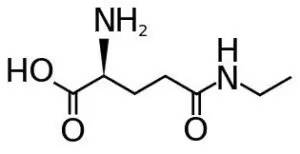
As an analogue of glutamate and glutamine, it’s hydrolyzed in your intestine and liver into l-glutamate and ethylamine. And easily crosses your blood-brain barrier.
L-Theanine is one of the very few nootropics known to modulate brain waves. It affects alpha brain waves which are associated with relaxation. Providing an alert calmness, L-Theanine helps in promoting super-learning, flow states and joy.
L-Theanine boosts the neurotransmitters serotonin, dopamine and GABA in your brain. As well as increasing Brain-Derived Neurotrophic Factor (BDNF) and Nerve Growth Factor (NGF).[ii]
L-Theanine is known for helping to relieve stress, improve cognition, boost mood and cognitive function.
How does L-Theanine work in the Brain?
L-Theanine boosts brain health and function in several ways. But two in particular stand out.
- L-Theanine reduces physical and mental stress. L- Theanine helps increase alpha brain waves which are associated with mental relaxation and concentration.
One study in South Korea worked with 20 healthy male volunteers aged 18 – 30 years. One group was given L-Theanine tablets, and the other group a placebo daily for 7 days.
Brain waves were measured 40 minutes after administration of the tablets. The researchers analyzed alpha wave power values. And concluded that L-Theanine tablets promoted the release of alpha brain waves related to mental relaxation and concentration.[iii]
In May 2016, researchers at Simon Fraser University in Canada developed a technology to clinically measure brain wave patterns. With this technology, we’re now able to detect cognitive dysfunction before it happens. Imagine the implications of this new technology when applied to the nootropics world.[iv]
- L-Theanine increases neurotransmitters. Research shows that L-Theanine increases dopamine, serotonin, and GABA in your brain.[v] And it reduces the excitatory neurotransmitter glutamate which is associated with stress, tension and agitation.[vi]
A study done in Japan worked with 12 people who underwent 4 separate trials. One in which they took L-Theanine at the start of the experiment. One in which they took it half-way through. And two control trials in which they took either a placebo or nothing.
The results showed that L-Theanine resulted in a reduction in heart rate and s-IgA associated with acute stress. The researchers concluded that L-Theanine could cause anti-stress effects via the inhibition of cortical neuron excitation.[vii]
How things go bad:
As we get older, our brain chemistry and energy metabolism changes.
↓ Neurotransmitter levels decline
↑ Glutamate levels increase
↑ Stress levels increase
↓ Long-term memory and mood decline
↓ Quality of sleep declines
All of these changes can happen at any age once we reach adulthood. And are contributing factors to the neurodegenerative diseases of aging, and quality of life.
L-Theanine benefits
L-Theanine energizes without draining, calms without putting you to sleep, and motivates without causing a jagged edge.
 Tea (as a source of L-Theanine) can have as much caffeine as some coffees. And yet doesn’t exert the same “speedy” effect. And the reason is the ingredient L-Theanine.
Tea (as a source of L-Theanine) can have as much caffeine as some coffees. And yet doesn’t exert the same “speedy” effect. And the reason is the ingredient L-Theanine.
You can actually see L-Theanine’s effect in your brain using an EEG. Brain waves are smoothed out rather than flattened out.[viii] So your body is relaxed, your mind is calmed, but you don’t get sleepy. And L-Theanine, once it crosses the blood-brain barrier, raises levels of serotonin and dopamine.[ix]
L-Theanine even improves your quality of sleep. Researchers in Japan gave volunteers 200 mg of L-Theanine daily and recorded their sleep patterns. Sleep quality, recovery from exhaustion, and feeling refreshed were all enhanced by L-Theanine.[x]
And L-Theanine puts you in a better mood. Once it crosses your blood-brain barrier, L-Theanine changes levels of amino acids affecting serotonin, dopamine, and GABA. Having a modulating effect on mood.[xi]
How does L-Theanine feel?
Your unique neurochemistry including neurotransmitters, brain waves, brain structure and even regional brain activity will influence your response to L-Theanine.
Most neurohackers report a calming effect within 30 – 45 minutes of taking L-Theanine. Cognition gets a boost, and energy levels rise without the jitteriness caused by stimulants like caffeine.
Some report L-Theanine has stopped their anxiety and panic attacks. Just don’t combine it with anti-anxiety meds like Xanax.
Most report an overall improvement in the sense of well-being and quality of life. And nearly all remark on better quality sleep.
L-Theanine Clinical Research
Green Tea reduces incidence of stroke
Research has found that if L-Theanine is present in the body at the time stroke occurs, brain damage will be significantly reduced.
In this monster study done in China, researchers selected 14,212 subjects from 12 provinces. Ages ranged from 35 – 60 years old. The study looked at tea drinking status, dose and type of teas.
This study concluded there was a 40% decreased risk of stroke in those who drank green, black or jasmine teas.[xii]
L-Theanine improves memory
In this double-blind, placebo-controlled study, the effect of L-Theanine on memory and attention was investigated.
91 subjects with mild cognitive impairment were enrolled in this study. One group received 1,680 mg of L-Theanine daily for 16 weeks. And the control group received a placebo.
The study concluded that L-Theanine increased brain Theta waves associated with cognitive alertness and creativity. And there were improvements in memory. The results of this study suggested that L-Theanine has potential as an intervention for cognitive improvement.[xiii]
And that is an understatement by any stretch. People spend years meditating. With the goal of reaching consistent access to brain wave states like Theta. In this trial, they did it with a dose of L-Theanine. The same type of dose you could get with a few cups of quality green tea.
L-Theanine reduces stress
Considerable research has been dedicated to L-Theanine and its benefits to stress reduction in both animal and human studies. And we have ample documentation that corticosterone and stress exert negative effects on memory.[xiv]
Corticosteroids which are secreted after stress, have a profound impact on long-term potentiation and memory formation.[xv]
In this animal study, rats were fed water containing L-Theanine for 3 weeks and put through some stress inducing exercise. The researchers found that corticosterone levels were lower in the rats who used L-Theanine compared to those who had none.
In fact, stress had no effect on the animals who were fed L-Theanine. Memory was not affected. The researchers concluded that L-Theanine modified corticosterone secretion. And L-Theanine is a strong preventive measure in preventing memory loss otherwise induced by stress.[xvi]
L-Theanine Recommended Dosage
Recommended dosage of L-Theanine is 100 – 400 mg once or twice per day. With a maximum of 1,200 mg per day according to the Cleveland Clinic.[xvii]
L-Theanine is water soluble so you can take it with water.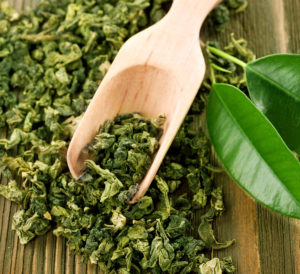
Labels on quality green tea often only display the amount of green tea leaf available in each bag in milligrams (mg). But not its L-Theanine content. Green tea that’s steeped correctly will offer 1-2% L-Theanine per cup. So 1,500 mg of green tea leaf would be about 30 mg. of L-Theanine (at 2%).
We often say that YMMV, and this is especially applicable to L-Theanine. Find out what works best for you. Start at a lower dose like 100 mg. And work your way up until you achieve the effects you’re looking for.
L-Theanine Side Effects
L-Theanine is a naturally occurring amino acid found in plants like tea or one species of mushroom. So it’s considered non-toxic and very safe.
Theanine seems to decrease blood pressure. So if you’re on meds for high blood pressure, use L-Theanine with caution. Your blood pressure could go too low.
Type of L-Theanine to Buy
L-Theanine is available in green, black and white teas. Green tea contains the most L-Theanine.
A great side benefit for neurohackers is green tea also contains caffeine. A cup of good quality green tea has less caffeine than a cup of coffee. About 10 mg less.
L-Theanine + Caffeine stack
One study done at Unilever in the UK looked at the combined effects of L-Theanine and caffeine on cognitive performance and mood. They compared 50 mg of caffeine with and without 100 mg of L-Theanine.
The research team had 27 volunteers participate. And based measurements on word recognition, rapid visual information processing, critical flicker fusion threshold, attentions switching and mood.
Performance was measured at the beginning, and again 60 minutes and 90 minutes after consumption. Separated by a 7-day washout period.
Caffeine improved alertness at 60 mins. And accuracy on attention-switching at 90 mins. The L-Theanine and caffeine combination improved both speed and accuracy, and reduced susceptibility to distracting information on the memory task.
The research team concluded that, “L-Theanine and caffeine in combination are beneficial for improving performance on cognitively demanding tasks”.[xviii]
And for an added bonus, L-Theanine takes the jittery-edge off of caffeine consumption.
The best pre-formulated caffeine + L-Theanine stack I’ve tried, and use is Click for Performance Lab® Caffeine 2 . It contains Natural Caffeine (from Coffea Robusta seeds) 50 mg, L-Theanine 100 mg, L-Tyrosine 250 mg, with a balanced NutriGenesis® B-Complex. For alert clean energy without the jitters.
L-Theanine from green tea
Extracting the optimal amount of L-Theanine from green tea is both art and science.
Researchers at the University of Newcastle in Australia set out to determine optimal conditions for water extraction of L-Theanine from green tea. They examined 4 different extraction methods. And learned that temperature, extraction time, ratio of water-to-tea and tea particle size had significant impacts on extraction yield of L-Theanine from green tea.
They concluded, “The optimal conditions for extracting theanine from green tea using water were found to be extraction at 80 °C for 30 min with a water-to-tea ratio of 20:1 mL/g and a tea particle size of 0.5-1 mm.” [xix]
So to get the most nootropic value when using green tea as your L-Theanine source – follow the directions. Just sayin’…
L-Theanine Supplements
L-Theanine is available in capsule or tablet form from several supplement manufacturers. Japanese company Taiyo is the oldest and most established company in the green tea supplement industry. Taiyo developed and patented a method for L-Theanine extraction from green tea called ‘Suntheanine®’.
Research has shown that some supplement makers using their own extraction method for L-Theanine, contain more than just the “L” form of Theanine. Turns out if it’s not done exactly right, you end up with a “D” form of Theanine.
D-Theanine may have a very different action in your body than L-Theanine. We’re not saying it’s dangerous. You just may not get all the benefit of pure L-Theanine.
So read the labels and reviews by people who have tried the product.
I recommend Mind Lab Pro because it works. And addresses all aspects of anxiety resistance, memory and cognitive enhancement, stabilizes mood, brain repair, and maintenance.
This premium nootropic stack is designed to affect neurotransmitters, cognitive energy, brain waves, neuroprotection, and regeneration. See my Mind Lab Pro review for a detailed report.
You will also find L-Theanine in Click for Performance Lab® Caffeine 2 . It contains Natural Caffeine (from Coffea Robusta seeds) 50 mg, L-Theanine 100 mg, L-Tyrosine 250 mg, with a balanced NutriGenesis® B-Complex.
Nootropics Expert Recommendation
L-Theanine 100 – 500 mg per day
 I recommend using L-Theanine as a nootropic supplement.
I recommend using L-Theanine as a nootropic supplement.
Your body cannot make L-Theanine on its own. It’s a non-dietary amino acid only available from tea (and one little-known mushroom).
L-Theanine affects Alpha and Theta brain waves. This alone will help calm your mind, reduce stress, and help you stay alert. You’ll get even more cognitive benefit by stacking L-Theanine with caffeine.
L-Theanine helps boosts the neurotransmitters dopamine, serotonin, and GABA. Improving alertness and attention. And boosting cognition and memory.
And it reduces the excitatory neurotransmitter glutamate which is associated with stress, tension and agitation.
L-Theanine helps to prevent strokes, and even reduces the damaging effects if you’ve had a stroke.
And L-Theanine has been shown to improve sleep quality.
I suggest starting with a dose of 100 – 250 mg of L-Theanine daily for nootropic use. Using either a quality supplement, or high quality green tea.
Mind Lab Pro contains a synergistic blend of 11 brain enhancing nootropics covering all aspects of cognition and brain health. See my full Mind Lab Pro review for more.
Or for a smooth energy boost I recommend Click for Performance Lab® Caffeine 2 . For alert clean energy without the jitters.

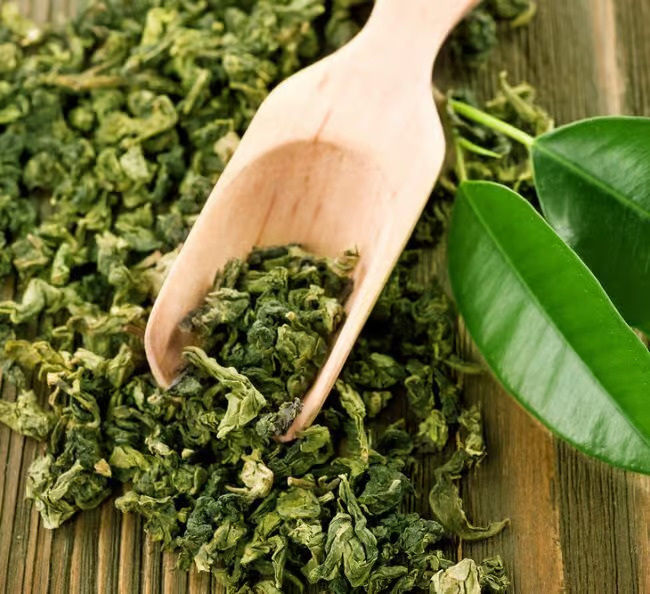
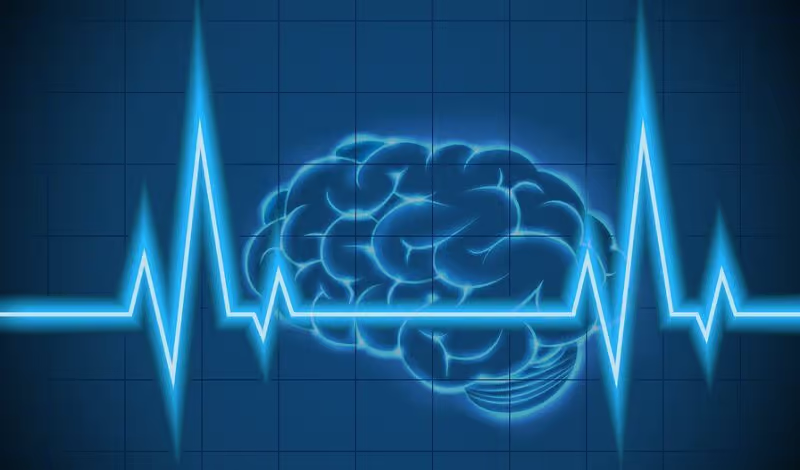
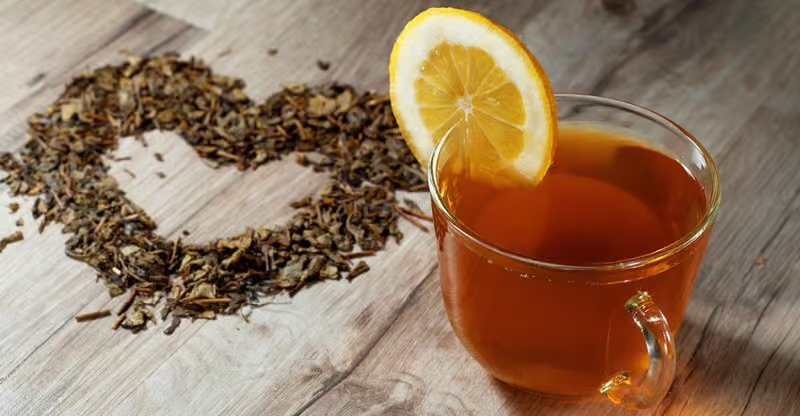





Join The Discussion - 335 comments
Aleksandar
March 7, 2019
David,
Can I put Matcha green tea powder in capsules and consume it that way, instead of drinking it dissolved in liquid? Same effect? It can be more conveniant in some situations.
Thanks,
Aleksandar
David Tomen
March 8, 2019
Aleksandar, should work and the evidence is some manufacturers selling Matcha in capsules.
Erik
January 27, 2019
David,
Have you ever heard of any reports of L-Theanine affecting motivation? I read some comments from some folks mentioning that effect. About 3 years ago I was highly motivated, now don’t get me wrong I’ve always had social anxiety and stress etc but even then I was always motivated. After reading those comments it made me wonder, when it exactly did I start taking L-Theanine? It was about 3 years ago, at first I thought it was just a coincidence, but I still struggle with motivation. I’ve been drinking caffeine for as long as I can remember. The only supplements I started taking in that time frame were L-Theanine, Lycopene, pomegranate and a fish oil. And I’ve been taking these 4 consistently these past 3 years. I’ve noticed that Aniracetam helps with the motivation…
David Tomen
January 28, 2019
Erik, it’s very likely that L-Theanine helps with motivation. Because this potent nootropic boosts the neurotransmitters serotonin, dopamine and GABA in your brain. As well as increasing Brain-Derived Neurotrophic Factor (BDNF) and Nerve Growth Factor (NGF). And it affects Alpha and Theta brain waves.
Ted Oplinger
January 27, 2019
Does Magnesium L-Threonate function as an L-Threonine supplement?
David Tomen
January 28, 2019
Ted, L-Threonate is a deriviative of L-ascorbic acid 2-phosphate which is a derivative of Vitamin C (ascorbic acid). And is combined with magnesium to increase bioavailability.
I think you are confusing L-Threonate and L-Theanine. Two very different substances. One if from Vitamin C and other is primarily found in green tea.
Ted Oplinger
January 28, 2019
Thanks, David.
I was wondering about that.
I am new to the nootropics scene, and even though I was an analytical chemist in my career, some of this gets past me.
thanks for the confirmation.
Aleksandar
January 2, 2019
David,
Is it possible to determine how much L-Theanine is in, say, 500 mg Green Tea Extract (leaf) (98% Polyphenols, 45% EGCG)?
Thanks
David Tomen
January 2, 2019
Aleksandar, Green tea that’s steeped correctly will offer 1-2% L-Theanine per cup. So 1,500 mg of green tea leaf would be about 30 mg. of L-Theanine (at 2%). But it’s purely a guessing game unless you have sophisticated test equipment.
Gabriella
November 9, 2018
Hi David,
Can I dose NAC and L-Theanine together? I ask because I read in only one source that these 2 should not be stacked together in the doses I am considering long term. But the writer gave no cited source to back this up.
The only reason I can think of is that both compounds work to reduce and control glutamate and glutamate toxicity. So maybe stacking them together might cause too much reduction in this excitatory neurotransmitter.
NAC is 1800 mg 3 times a day. And L-Theanine I’m still experimenting with on it’s own. Today I had 200 mg and I still feel it’s effect, although weaker than this morning. So I might only need one dose or 2 smaller ones spread out. It’s mainly for anxiety. But also for the other great benefits L-Theanine offers the brain.
What are your thoughts on stacking these in the doses described as a long term thing?
Thanks in advance.
David Tomen
November 9, 2018
Gabriella, NAC “regulates” glutamine levels and L-Theanine tends to “reduce” glutamate. So they are not working exactly the same when it comes to glutamate. The key is balancing glutamate and glutamine.
Personally, I drink 4 – 5 cups of green tea per day which is about 30 mg per cup of tea. And I use 500 mg of NAC twice per day. And it works just fine. You may just need to reduce your NAC dosage. Bottom-line is don’t stress about it. Just listen to your body and if it’s telling you to increase or reduce either supplement, then trust your body.
There is nothing life threatening here as far as I can tell from this end. And stress affects neurotransmitter levels. So please don’t get stressed about this. Just keep on experimenting until you find that sweet spot.
Gabriella
October 30, 2018
Hi David,
I have Bipolar Mood Disorder Type 2 and I’m one of millions who fell into the trap of Psychotropic drugs for treatment. After being medicated to the nines by a previous doctor I just spent 2 weeks being hospitalized to withdraw from Gabapentin. And thankfully I have a new doctor who’s open to Nootropics as alternatives. So far I’m using NAC 600 mg 3 times per day. I started a few days ago when I was discharged and immediately felt marked improvement in my mood, with much less brain fog.
I still take Carbamazepine (Tegretol) 400 mg twice daily. And also a small dose of Pregabalin (Lyrica) three times a day. Both as mood stabilizers.
But our focus now is to taper and withdraw from the neuroleptic Quetiapine. I have tried to come off it before and experience the most terrible withdrawals. And I’ve read that I’m not the only one.
Photosensitivity, eye pain, insomnia and hellish itching all over were some of my withdrawal symptoms. But I’ve read other folks developing Tardive Dyskinesia and other Parkinson’s-like symptoms.
I know the mechanism of Quetiapine is blocking Dopamine receptors at D2 and Serotonin receptors at 5HT2A.
So I’m looking for Nootropic suggestions to help slowly bring my brain and neurotransmitters back into health.
As I mentioned before, I’m using 1800 mg of NAC a day. And I’ve learned from your book Head First that L-Theanine might do well too.
What other Nootropics can you suggest to achieve my goals of easing withdrawal and bringing my brain back to health?
Thanks in advance.
David Tomen
October 30, 2018
Gabriella, one way to look at this is treating your brain for “traumatic brain injury”. I realize that sounds a little harsh but it’s essentially what you need to do. I suggest searching Head First and Nootropics Expert for “BDNF”, “synapses”, “dendrites” and “neurogenesis”.
You are going to get a ton of returns for those search but concentrate on individual nootropic reviews instead of blog posts and pages. For example, a search for “synapse” turns up Turmeric which has been shown to “synaptic plasticity”. And Lithium “promotes the BDNF needed for synaptic plasticity”. See where I’m going with this?
Just please be careful you don’t try something that will interact negatively with any of the meds you are on.
Gabriella
October 31, 2018
David,
I can’t thank you enough for putting me on this path of research.
Hearing the term brain injury is scary but it’s not the first time I’ve come to realize it. A very informative book written by Dr. Peter Breggin called Psychiatric Drug Withdrawal lists Chronic Brain Injury as the top reason for doctors and patients to consider withdrawal from these drugs.
Most of the stories I’ve read about folks who’ve done this kind of withdrawal have horrific legacy symptoms.
Anyway, the best thing I can do for my brain right now is to find ways to begin healing it before withdrawal starts.
Thanks again for your kind help.
Regards,
Gabriella
Gabriella
October 8, 2018
Thanks for this great post on L-Theanine David.
It’s one of the Nootropics I’m taking now while tapering off my psychotropics. I feel it’s safe whereas with the other’s I’m planning to use, I’ll be waiting until I’m taking lower doses.
Everything I’m planning to use are water soluble nootropics. But I’d like to ask you what your opinions are on the order of taking nootropics, fish oil and milk thistle.
Is it best to take the water soluble nootropics on an empty stomach? Then wait an hour before eating and then taking the fish oil and milk thistle supplements?
David Tomen
October 8, 2018
Gabriella, you can take water soluble supplements anytime. It’s the amino acids you need to worry about because they often compete with amino acids in your food. So amino acids should be taken an hour before or two hours after meals.
I take my Omega-3 (DHA) first thing in the morning and milk thistle with the rest of my stack a couple of times per day.
Kelly
September 1, 2023
So do you need to take l-theanine on an empty stomach since it’s an amino acid? Or not, since it is not a dietary amino acid that we need?
David Tomen
September 4, 2023
Kelly, I don’t go for the empty stomach thing. Theoretically, amino acid supplements compete for the same transporters as the amino acids we get from foods. But supplements are usually higher dosage that the equivalent in food so they win anyway.
Shannon
July 2, 2018
Hi, I’m in need your advice. I was on 1mg of xanax for 17 days for anxiety, unfortunately I had an paradoxical effect and was taken off the xanax per my MD order ( with tapering ). Before taking xanax I was having heart palpitations maybe twice a month, now that I’m off the xanax I’m having palpitations and my anxiety is very high daily. Do you have any suggestions for me regarding natural supplements?
David Tomen
July 3, 2018
Have you tried to find out what is causing the heart palpitations? Harvard has a good post on causes here: https://www.health.harvard.edu/heart-disease-overview/skipping-a-beat–the-surprise-of-palpitations
The easiest things to have checked are thyroid issues, low potassium, and anemia. The Harvard post mentions beta blockers are sometimes use to treat this condition. See “Natural Alternatives to Beta Blockers” in this post on anxiety: https://nootropicsexpert.com/best-nootropics-for-social-anxiety/
And check out the last section of that post on other nootropics used for anxiety. L-Theanine is one of them and a good choice. But it may take a stack or 2 – 4 supplements to tame your symptoms.